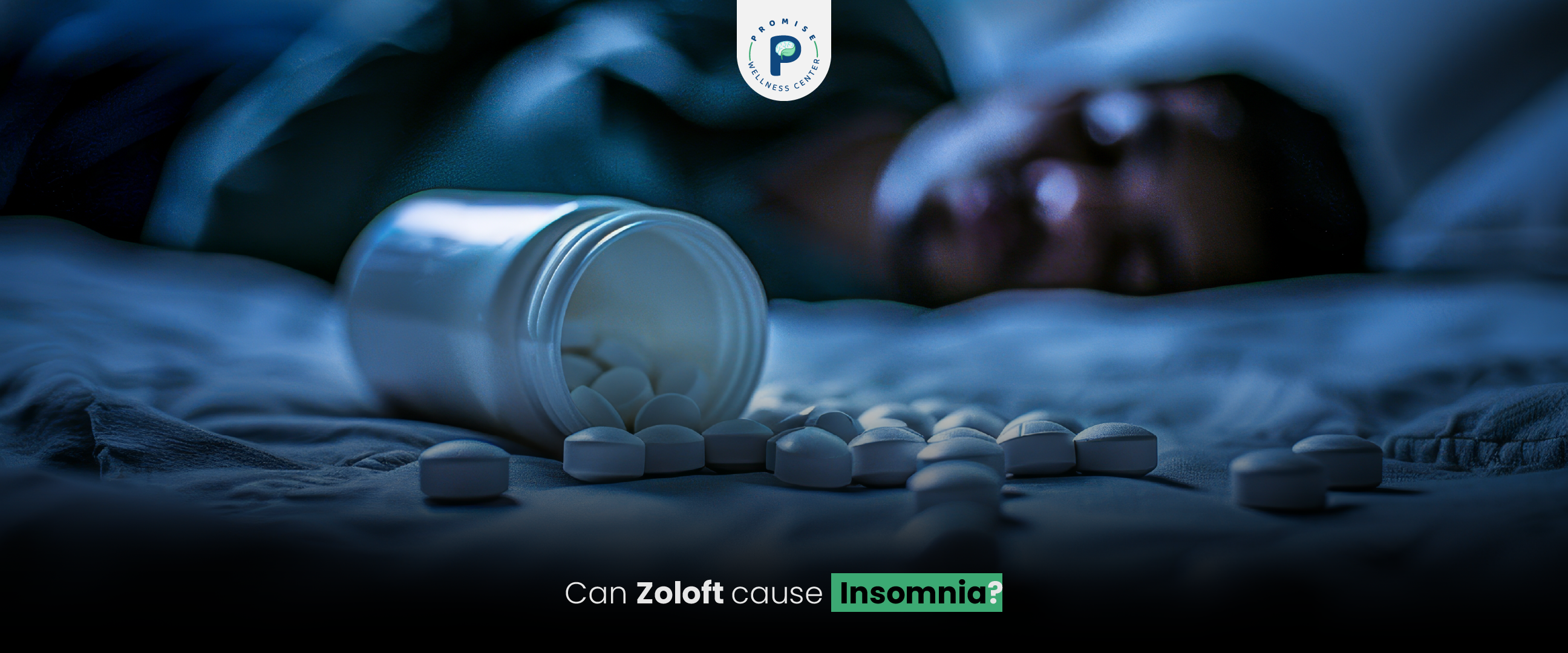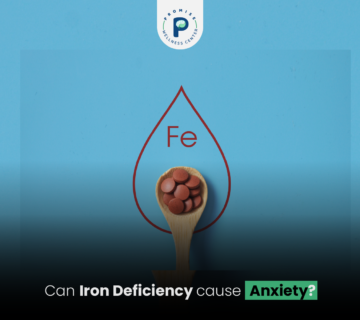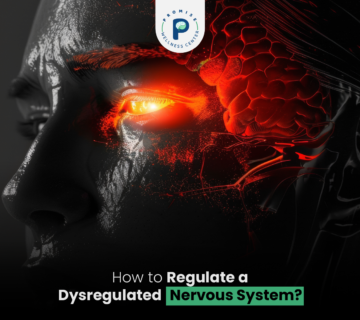Mental health issues often cause sleepless nights. Unfortunately, treating depression can worsen insomnia. For instance, Zoloft and similar drugs affect one in five patients.
However, there is hope. Promise Wellness Center, our sleep therapists are ready to help. Contact us today to regain restful sleep.
Let’s find the answer in detail: can Zoloft cause insomnia?
How Zoloft Works
Zoloft, or Sertraline, raises serotonin by preventing its reabsorption in brain cells. This SSRI antidepressant effectively treats depression and anxiety. However, it often disturbs sleep Zoloft, causing insomnia.
Does Zoloft Cause Insomnia?
Zoloft, known as Sertraline, is an SSRI antidepressant. Many people face challenges at first when trying to fall asleep or maintain sleep. This improvement typically occurs as the body adjusts.
Despite potential sleep issues, Zoloft is key in managing mental health conditions. Patients should consider its benefits and side effects when choosing treatment.
Here are some key reasons Zoloft might cause insomnia:
- Serotonin Impact on Sleep: Zoloft causing insomnia issues for many. It alters serotonin, a vital brain messenger. This disrupts the body’s rhythms. So, falling and staying asleep becomes hard. The drug also affects neurotransmitters, further disrupting sleep cycles and causing restlessness.
- Increased Energy Levels: Zoloft boosts mood and energy but has a downside. It reduces fatigue but can cause sleep problems. Its stimulating effects, especially at night, may disrupt sleep.
How to switch Zoloft from night to morning?
- Timing of Medication: Zoloft’s timing impacts sleep. Morning doses reduce nighttime disruptions. Taking it later often leads to insomnia. Therefore, doctors usually recommend taking it early. This helps maintain healthy sleep while enjoying the medication’s benefits.
- Adjustment Period: Many new Zoloft users face sleepless nights. This common side effect usually fades as the body adjusts. Most people then return to normal sleep. However, some may continue to struggle with insomnia. This can happen even after the change period. Patience is crucial. Time often solves problems, but not always quickly or completely.
Can Zoloft Cause Nightmares
Yes, Zoloft (sertraline) can cause nightmares in some people. It’s an SSRI that boosts serotonin. It can affect sleep and dreams. Some people report disturbing dreams, including nightmares, as side effects.
Zoloft can cause nightmares. Zoloft can cause nightmares by affecting REM sleep. If this happens, talk to your doctor. They might adjust your dose or suggest other treatments.
Zoloft Recommended Dosage
Is 100mg of Zoloft a lot?
Yes, you begin Zoloft with a small amount. Normally, people with depression take 50 mg daily. If you struggle with anxiety, it’s often 25 mg. Health experts choose the right amount for you. In the first stage, they keep an eye on how it works and check for side effects. It is important to take Zoloft at one time—every day.
You can choose morning or night; stay safe. If it causes sleep issues, use it in the morning. If it makes you sleepy, the night is better. Your body’s reaction can help you decide. Always consult your doctor for detailed advice.
Forgot a Zoloft dose? Take it right after remembering. However, if the time for the next one is near, forget the missed one. Never take it twice in one go. Return to your routine. Evenness is vital, but don’t panic over occasional forgets. Always follow your doctor’s instructions for the most successful result.
Tips to Manage Zoloft-Induced Insomnia
Zoloft causing insomnia. Try these strategies to improve your sleep:
- Take Zoloft in the morning to prevent insomnia. This allows the body to process it before bed. Always consult your doctor before changing your schedule.
- Stick to a sleep routine. Go to bed and wake up at the same time daily. This regulates your internal clock and improves sleep.
- Limit stimulants: Avoid caffeine in the afternoon and evening. It worsens insomnia. Also, cut screen time before bed to reduce blue light exposure.
- Try relaxation techniques. Do deep breathing, meditation, or gentle yoga before bed. These calm your mind and body, making it easier to sleep.
- Consult your doctor if insomnia persists. They might adjust your Zoloft dosage or suggest sleep helps.
To Wrap it Up
Can Zoloft cause insomnia?
Zoloft cause insomnia in some people. Managing well and following your doctor’s advice can lower the unwanted effects. Stick to your medical expert’s suggestions for optimal outcomes.
FAQs
How can I manage Zoloft causing insomnia?
Take Zoloft in the morning. Stick to a sleep schedule. Avoid evening caffeine. Relax before bed. Consult your doctor for advice.
Can Zoloft cause nightmares?
Zoloft might affect REM sleep, leading to nightmares. If they are disturbing, see your doctor right away.
What’s the typical Zoloft dosage?
Zoloft for depression usually starts at 50 mg. For anxiety, it begins at 25 mg. Doctors adjust these based on individual responses and needs.
How long before Zoloft works?
Zoloft takes a few weeks to show effects. Always follow the prescription. Consult your doctor for changes.
What if I miss a Zoloft dose?
Take it as soon as you remember. If it’s close to the next dose, skip it. Don’t double up. Always stick to the plan and consult your doctor.
Can lifestyle changes help sleep on Zoloft?
Yes, regular sleep, avoiding caffeine, and relaxing exercises can help.






No comment